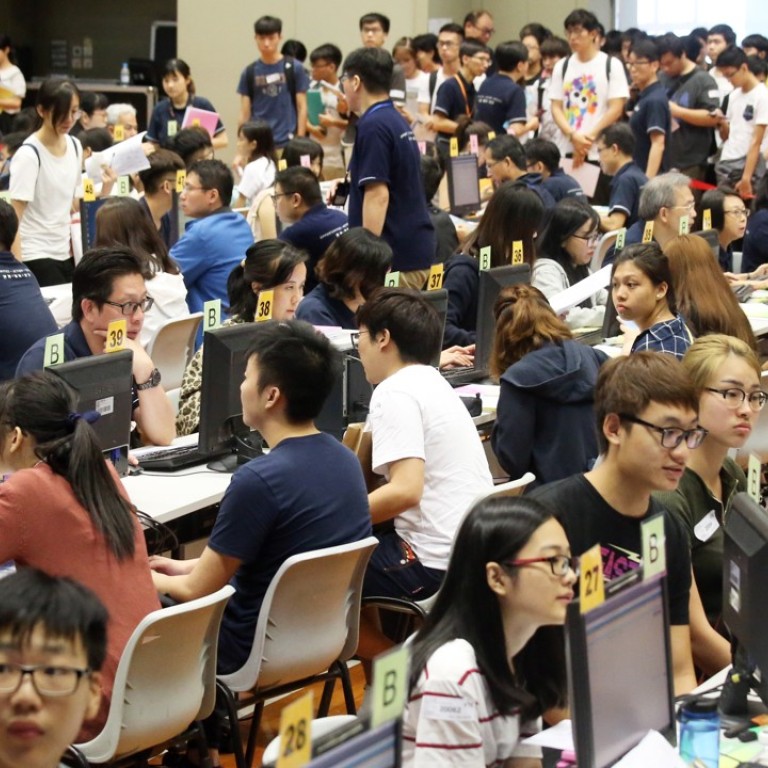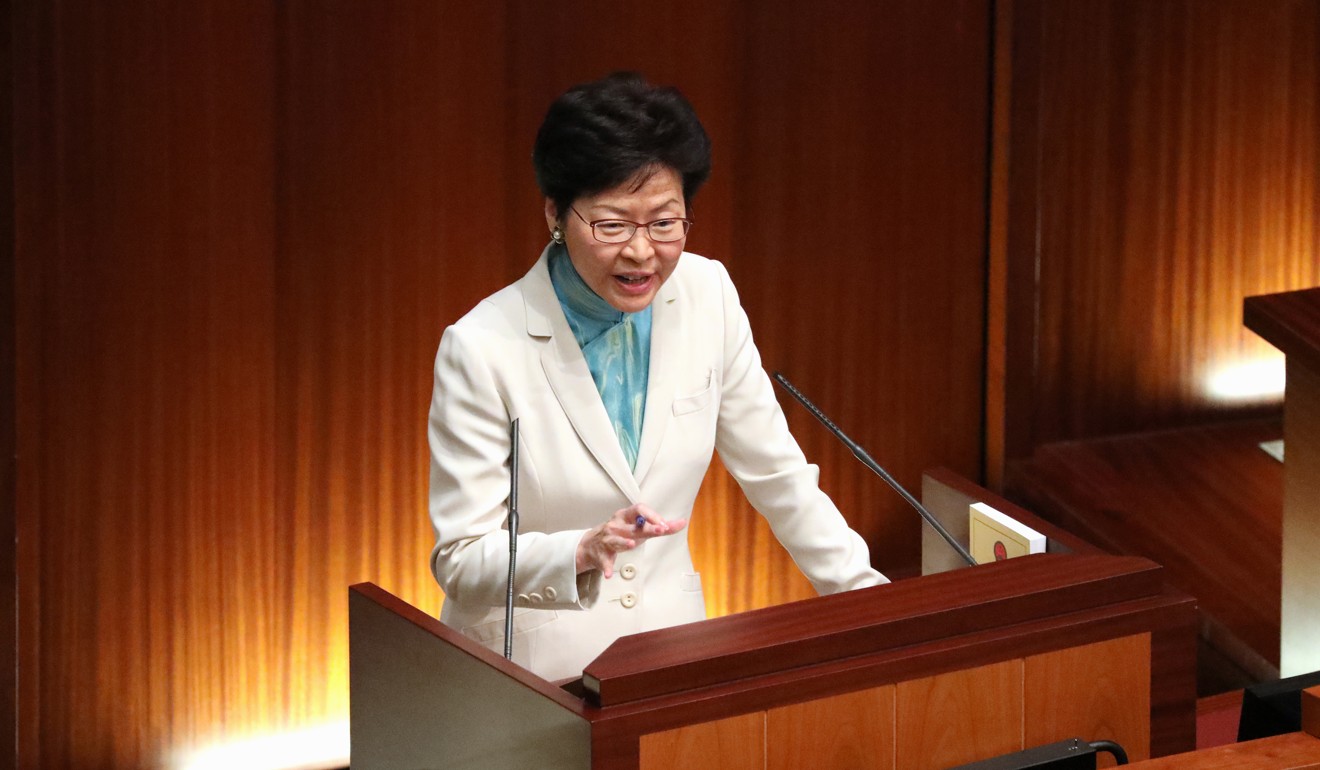
Snubbed again? Hong Kong sub-degree students complain about being left out of government education initiatives
Only HK$120 million out of HK$8.3 billion has been spent on support for such courses, with opinion divided on how useful such qualifications are and whether they should continue
Students in Hong Kong’s sub-degree programmes have complained about being left out of key education initiatives announced by the city’s leader.
Sub-degrees include associate degrees and higher diplomas, and can serve as a stand-alone qualification or offer the next step into universities.
“The government should be [fair] to everybody and provide equal amounts of support,” said Rai Santosh, 19, a second-year, associate degree programme student at HKU Space.

After Lam’s HK$5 billion (US$637.6 million) boost to annual education spending in July last year, the government committed an extra HK$2 billion during this year’s budget and another HK$1.3 billion in the latest policy address.
But of the total HK$8.3 billion, only HK$120 million has been spent on support for sub-degree courses. That was on the Study Subsidy Scheme for Designated Professions/Sectors (SSSDP), which targets specific industries in which labour demand is high.
The government should be [fair] to everybody and provide equal amounts of support
Students enrolled in sub-degree programmes under the SSSDP will from 2019/20 be able to benefit from subsidies of HK$20,000 or HK$36,000, depending on whether laboratory work is involved. The scheme is now offered exclusively to students pursuing degrees at private institutions.
But only about 4,000 students are expected to benefit from the extension.
In contrast, students from six publicly funded universities will benefit from a HK$12 billion hostel development fund announced in last year’s policy address. The fund subsidises the construction of university hostels to more quickly increase available accommodation.
Two-thirds of all sub-degrees offered in Hong Kong are not subsidised and such courses typically cost more than HK$50,000 a year. That compares with the heavily subsided fees for bachelor’s degrees, which cost HK$42,100 a year at publicly funded universities.
Median salary of sub-degree graduates only 3pc more than those from high schools
Even those enrolled in bachelor’s degree programmes at private institutions now get a subsidy of HK$30,800 in a scheme Lam introduced soon after she took office in 2017.
But opinion is divided on whether sub-degrees should continue, with studies showing they give little advantage in the labour market compared with a secondary school graduation certificate.
In 2016/17, about 32,000 people were enrolled in sub-degree programmes.
A second-year social work higher diploma student who wished only to be identified by her surname Fung voiced disappointment that sub-degree students were again snubbed in this year’s policy address.
“I already have more than HK$100,000 of student debt from costly school fees, so even though I want to further my studies and get a topped-up degree after graduation, I probably have to work a few years first,” she said.
‘Hong Kong institutions don’t need bureau approval to offer sub-degrees’
Santosh, whose family is from Nepal, noted he had to cut down on his expenses after his parents took a loan from a bank to pay for his school fees.
However, some in the industry have recognised Lam’s efforts in other education policies. Even the government’s biggest critic in the sector – the pan-democratic Professional Teachers’ Union – has said officials have been moving in the right direction and supported many of the announced measures.
Secretary for Education Kevin Yeung Yun-hung said at a press conference on October 11 that a task force led by former transport minister Professor Anthony Cheung Bing-leung was studying the private tertiary sector, which includes sub-degree programmes. Cheung is a former president of the Institute of Education, now known as Education University.
Yeung said he would wait for the task force’s recommendations, which are expected to be out later this year or early next year, before deciding on the future of sub-degrees.
But he noted the current proposal of extending the SSSDP reflected the views collected by the task force during its consultation, adding it was encouraging for students despite not affecting a large number of them.

